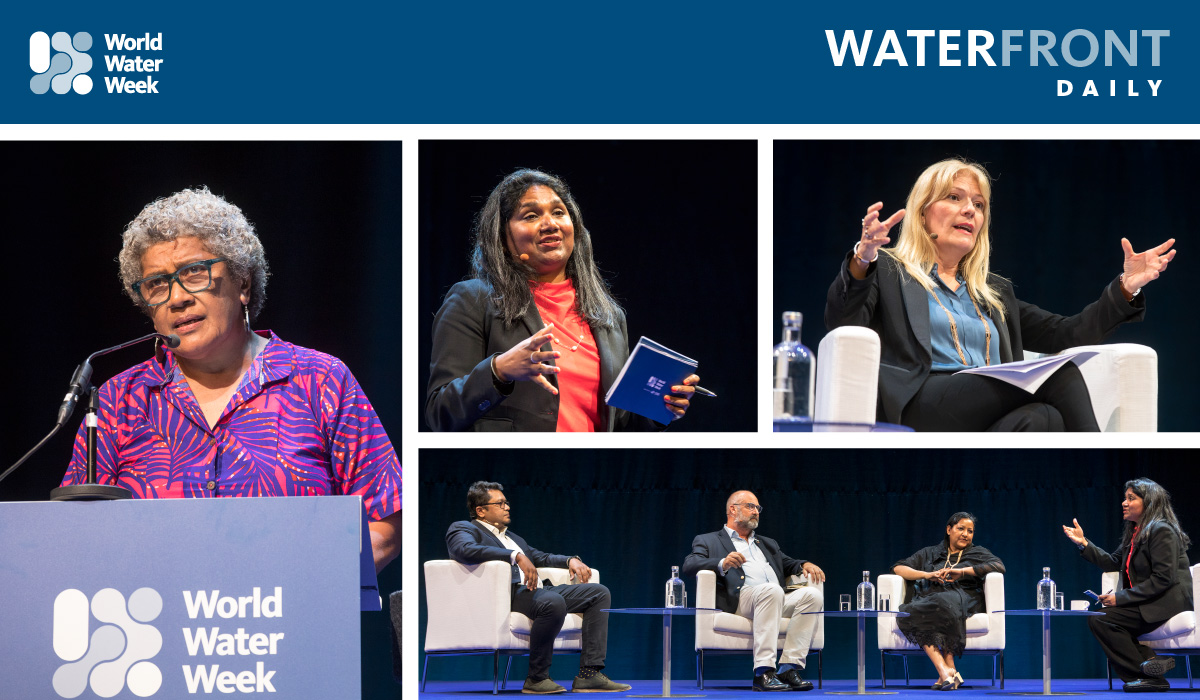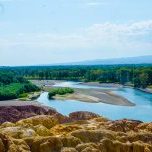Stockholm, Aug. 22(CED) — On Monday, the official opening ceremony took place at center stage in Water Front in Stockholm. The session shed light on key aspects of innovation. Filled with a vast array of ideas, the ceremony was, above all, action-oriented.

How do we understand innovation? And where do we need to innovate to bring about the change we want to see? Those were two of the key aspects of the official World Water Week Opening Ceremony that took place on Monday afternoon on Centre Stage.
The session was opened by SIWI’s Acting Executive Director, Karin Gardes, and the Acting Director of World Water Week and Prizes, Susanne Halling Duffy. Welcoming the participants, Gardes emphasized:
Change requires trust. I hope that World Water Week can provide you with that feeling.
In the face of the global water crisis, Halling Duffy stated that World Water Week must be solution oriented and that questions such as who gets to be at the table were key for reaching our common goals.
This was echoed by the keynote speaker, Milika Sobey, marine biologist, and indigenous representative. She called on the participants to drive innovation by incorporating indigenous knowledge in water governance: “Indigenous Peoples look at the picture holistically. For too long indigenous knowledge has been undervalued. Bring it to the table.” Referring to this year’s theme she added: “
Seeds of change require agents of change. I challenge the participants to be agents of change.
Looking at the United Nation’s system, the President of the United Nations General Assembly, Csaba Kőrösi identified clear demands: “There is not one united strategy on water by the United Nations. There is no home for the intergovernmental cooperation on water. That should be created. We are in the middle of the water crisis, but we have no platform to come together.”
He highlighted the key steps made during the United Nations 2023 Water Conference which led to 830 commitments amongst some of which could be understood as so-called “game changers”. According to Kőrösi, game changers are direly needed. Stressing the urgency of the water crisis he reflected:
Unless we change the game, we will have major challenges.
What is needed to change the game was at the heart of the discussions on stage. Johan Forssell, Swedish Minister for International Development Cooperation and Foreign Trade, raised the necessity to bring in the private market and outlined: “As politicians it is our job to make sure we have the right environment for investment.”
Paola Albrito, Director at the United Nations Office for Disaster Risk Reduction put emphasis on increased cooperation between the public and private sector. She stressed that governments need to prioritize risk, a call that was taken up by Sergio Campos Gonzales, Chief of the Water and Sanitation Division at the Inter-American Development Bank. He highlighted the transboundary nature of water and argued that “all countries need to invest in resilience. Taking no action has a cost.”
Data became another focus of the discussions. Sareen Malik, Executive Secretary of the African Civil Society Network on Water and Sanitation made a strong call by saying:
We need to bring together innovation, financing, data, and capacity development to put an end to women fetching water in the Global South. It is unacceptable that, in the age where space travel is about to become a fast-moving consumable good and artificial intelligence is writing our proposals, women still have the burden of fetching water.
SIWI’s Acting Executive Director Karin Gardes rounded up the rich discussions by saying: “When we talk about innovation we must first and foremost talk about our values. Who gets to be part of the conversation? How can we become agents of change and become better at working with nature?” Calling on all participants, she ended the opening ceremony with the words:
Let’s plant those seeds of innovation. Let’s get started.


